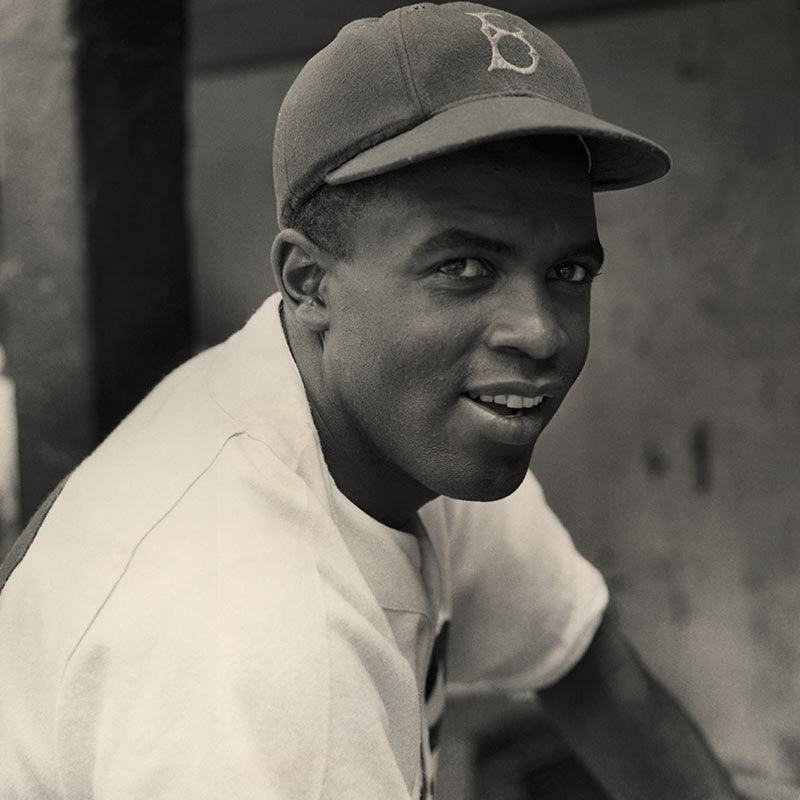When Jackie Robinson was my age, 28 years old, he made his MLB debut for the Brooklyn Dodgers. This was the beginning of the end of segregation in baseball.
Robinson’s success with the Dodgers did more than desegregate baseball — it provided hope and opportunity for all Americans whose skin was not white.
After Robinson came players such as Larry Doby, Roy Campanella, and Satchel Paige, whose presence in the Major Leagues allowed boys like Hank Aaron and Ed Charles to dream about being ballplayers. Eventually, kids of color would be able to dream of becoming pilots, doctors, and scientists because Jackie Robinson broke the color barrier of America’s pastime.
Many players who integrated baseball remain largely unheard of because they were 17- to 19- year-old kids who entered the minor leagues and never garnered the level of fame Jackie Robinson did.
These unsung heroes braved Jim Crow laws while playing for minor league teams across the South. They could play on the same fields as whites, but off the field they were still denied basic human rights. Some cities still had laws that forbade them from even being seen in public with a white person. A black player couldn’t miss many games to injury, or he would be stereotyped as lazy. Yet the players had to overcome these injustices and perform well enough to be promoted to the next level. Steve Jacobson tells the stories of these players in his book “Carrying Jackie’s Torch: The Players Who Integrated Baseball — and America.”
As baseball was integrating, the rest of America slowly caught on. One year after Robinson broke the color barrier, the United States army desegregated. Six years after that, Brown v. Board of Education desegregated public schools. And in 1965, African Americans were finally granted fair voting rights.
As segregation became illegal, some began moving toward racial reconciliation. In many cases, it was a team effort.
As much as minority players benefited from the support of their white counterparts, white players needed to experience friendship with minorities. As they made effort to embrace their full humanity, they needed grace-filled honesty.
“What is it that you people want?” Warren Spahn once asked Hank Aaron.
“All we want,” Aaron replied, “is the things you’ve had all along.” Spahn respected that answer and the two teammates got along well.
In Jackie Robinson’s case, he needed his teammate Pee Wee Reese. And Pee Wee Reese needed Jackie Robinson.
One of my favorite scenes from the movie _42_ is the moment when Reese puts his arm around Robinson so that his family from Kentucky can see firsthand his friendship with Robinson. Though Robinson appears unsure how to receive it, Reese explains that his family is at the game and they “need to know who I am.”
Prior to this scene, Reese is upset by hate mail he receives and complains to Dodgers owner, Branch Rickey. Rickey pulls out large files overflowing with hate mail that has been sent to Jackie Robinson. Reese, beginning to understand better what his teammate is going through, feels determined to combat racism by unashamedly deepening his friendship with Robinson.
The movie sequence is based on actual events, though the details are the screenwriter’s rendition. My favorite line, whether or not Reese actually ever said it, is “Maybe tomorrow we’ll all wear 42; that way they won’t tell us apart.”
On April 15, all players across Major League Baseball wear number 42 on Jackie Robinson Day, a tradition started in 2004.
Could Jackie Robinson, and other minority players, have succeeded in Major League Baseball without the support of the white teammates who accepted them? Maybe not. But if white America never had the chance to see integration on a baseball field, would it pursue equality in any other field — the military, the workplace, public establishments, housing?
When it comes to brotherly love, the American church still falls short, which is why growing in community is a team effort. In the same way that embracing ethnic diversity is needed to achieve unity on a team, the body of Christ needs to come together to experience the fullness of the gospel.
In John 17, Jesus prays for all believers, saying “I pray that they will all be one, just as you and I are one — as you are in me, Father, and I am in you…” (vs. 21).
“May they experience such perfect unity that the world will know that you sent me and that you love them as much as you love me” (vs. 23).
Jesus is praying to God the Father for unity among all believers, of every ethnicity, in the entire world. He prays for His Church to be united as one family, so that the world can experience the love of Christ and be connected to the Father.
Pursuing unity is a team effort. Which teammate needs to know he or she has your support? To which teammate might you need to extend grace? How can you work together to overcome evil?













